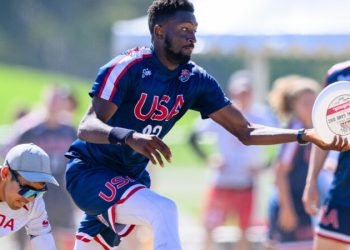Michael Phelps reached for his mother’s hand through a chain-link fence near the pool. The 19-year-old swimmer had just won his first Olympic medal — gold, of course — at the 2004 Athens Games, and he wanted to share it with the woman who raised him on her own.
That kind of moment between loved ones won’t be happening at the pandemic-delayed Tokyo Olympics.
No spectators — local or foreign — will be allowed at the vast majority of venues, where athletes will hang medals around their own necks to protect against spreading the coronavirus. No handshakes or hugs on the podium, either.
“I like to feed off of the crowd,” defending all-around champion gymnast Simone Biles said, “so I’m a little bit worried about how I’ll do under those circumstances.”
Catching sight of familiar faces during competition can bolster an athlete on a big stage. It helped Matthew Centrowitz at the U.S. track trials, where fans were allowed.
“Seeing my family in the crowd and hearing them gave me a little sense of comfort, and what I needed to hear and see to calm my nerves a little bit,” said Centrowitz, the defending Olympic 1,500-meter champion.
The youngest athlete on the U.S. team in Tokyo calls it “weird” that her family won’t be in the stands.
“They’re usually at all my meets,” said Katie Grimes, a 15-year-old swimmer from Las Vegas.
Katie Hoff was the same age as Grimes when she was the youngest member of the U.S. team in Athens. Nerves got to her in her first event, and Hoff…

























































